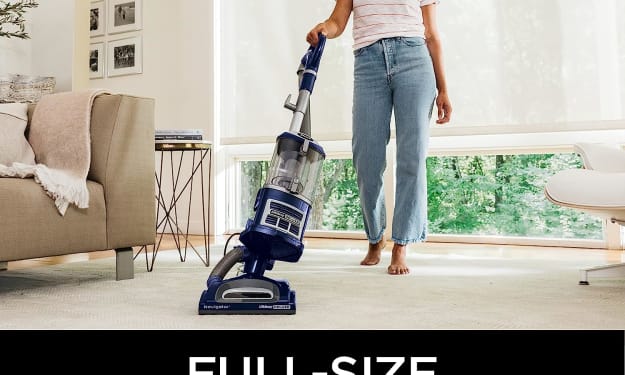Poor Indoor Air Quality: A Danger for Children
Safety tips for homeowners

Check out more stories shared by talented creators at Vocal.
Americans spend more than 90 percent of their time indoors, and poor interior air quality increases the risk of respiratory illnesses. Pair this with the fact that 7.1 million children have asthma and are at a higher risk of respiratory disorders when exposed to the hidden dangers hiding just under their noses, and it can make you quickly realize just how unsafe indoor air quality can be. It’s unnerving to know that something you can’t see is doing harm to your child, but it can be fixed. Keep reading for more information on how the air inside your home can distress your family, and what you can do to ensure everyone breathes easy.
Allergies, asthma, and air
There are a number of indoor air particles that can cause or worsen respiratory disorders in children. The two most common issues are allergies and asthma. According to Atlanta Allergy and Asthma, mold, animal dander, dust, and pollen are all common triggers. Signs of mold exposure include nosebleeds, fatigue, coughing, sneezing, and wheezing.
Identifying issues related to indoor air quality can be tricky as many symptoms mimic seasonal allergies. It should also be noted that bedbug infestation is often mistaken for a dust mite allergy. The primary difference between exposure to dust mites and bedbugs is that bedbugs, which consume human blood, leave blisters on a child’s body. In addition to mold and dust mites, other common indoor allergens that affect children include pet dander and pollen.
Clear the air
The first step toward making your home a hospitable environment for yourself and your little ones includes clearing the air. While your first instinct may be to open the windows, that can bring in additional allergy-causing particles. If you have not recently, change your air filter. A high-quality air filter will help clean bacteria, mold, dust mites, and pollen from the air. Your filter should be changed at least every 90 days and as often as every 30 days if you have pets or allergy sufferers in your home. Esurance also recommends cleaning carpets with a vacuum outfitted with a HEPA filter and regularly washing linens, even if beds have not been slept in.
Having a properly functioning central AC unit can also improve your home’s air quality as it helps circulate air in your home. It can also keep your home’s humidity levels under control which can prevent mold outbreaks. To make sure your unit is running smoothly, make sure to have it routinely checked. If it's no longer functioning properly, get it fixed by a pro. Websites like Angi make it easy to find certified, top-rated appliance repair services in your area. Some businesses also offer coupons to help you save on the service, but do some comparison shopping for quotes before taking advantage of these coupons.
Prevention
It is not enough to simply swap your air filter and wash a few loads of laundry. While that may alleviate the problem temporarily, irritants will return. Prevention includes grooming pets, pruning trees and shrubs so they’re at least three feet away from your home, fixing moisture problems, and being cautious in the types of cleaning products you use. A dehumidifier in the bathroom is a great way to pull moisture from the air. Add a few succulent plants, such as aloe vera, which will filter out some VOCs.
When you have children, finding the time to clean can be difficult with the laundry list of tasks you have on your plate, but it is crucial that you create and stick to a cleaning schedule. Merry Maids cautions against using a standard duster or broom because these traditional cleaning implements can kick dust and dander into the air. A microfiber cloth is a better alternative because they are designed to hold onto small particles. A non-aerosol spray formulated specifically to reduce allergens in the air can also help in between deep cleanings.
Outdoor time
While you don’t want to trap outdoor allergens indoors, it’s important that your children have fun in the sun and get some fresh air. Not only will going outside offer plenty of physical activity, but it can also help the youngest members of your family sleep better and reduce their exposure to pet dander and cleaning chemical byproducts. Activities you can do with your children outdoors include going for a quick bike ride, birdwatching, gardening, and camping.
As a parent, you want to keep your children as healthy as possible. Part of that includes making sure the air inside your home remains free of dust, dander, and mold. So change the air filter, stick to a cleaning schedule, wash the sheets, and breathe easy.
Image via Pixabay





Comments
There are no comments for this story
Be the first to respond and start the conversation.